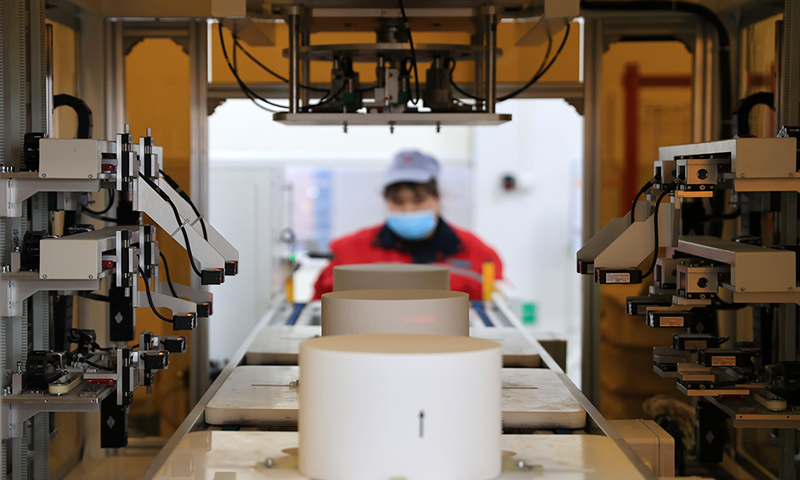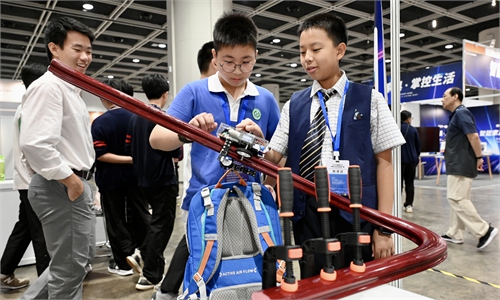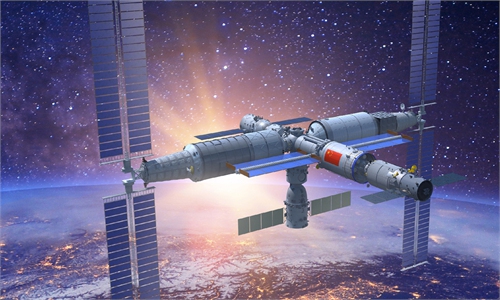
An employee watches as an AI industrial visual system inspects the quality of particulate filters for cars at a factory in Dongying, East China's Shandong Province on February 24, 2023. The system has an accuracy rate of over 99 percent in detecting 32 types of defects. Photo: cnsphoto
China's Ministry of Industry and Information Technology (MIIT) vowed to further apply artificial intelligence (AI) technology in the real economy sector, in a bid to develop the country's intelligent industry and promote new industrialization.
According to a plan released on Friday, MIIT will enhance research in framework building of basic technologies, accelerate intelligentization in key industries, promote the development of intelligent products and devices, and strengthen relevant supporting mechanisms.
Specifically, basic technology breakthroughs will be encouraged through important scientific innovation projects to increase the computing power of intelligent chips. AI technologies will be adopted into various phases of the manufacturing sector to greatly lift productiveness during research, testing, production, service and management, further increasing the development quality and manufacturing benefits.
MIIT said AI technology will accelerate the upgrade and iteration of high-end equipment, software and terminal devices, also adding that it will foster a group of elite enterprises and increase the creation and international cooperation in the field.
Tao Qing, an official from MIIT, said during a press conference held on Friday that the rapidly developing AI technology has shown multiple features including rapid innovation, high application performance and fierce global competition, and is being accelerated to combine with the manufacturing sector, reforming production and economic forms, and has facilitated multiple industries.
"The scale of China's core AI industry has continued to increase, with the enterprise number surpassing 4,400, and computing power ranking second worldwide," said Tao, noting that nearly 10,000 digital workshops and intelligent factories have been built in China, benefiting from deep integration of AI and manufacturing technologies.
Six government agencies including MIIT, Office of the Central Cyberspace Affairs Commission and the Ministry of Education released an action plan on October 9 to promote the high-quality development of the country's computing power technology, as the nation steps up efforts to boost its scientific and technological independence amid China-US tech competition.
The plan stated that the goal is to lift China's computing power to over 300 EFLOPS by 2025, up about 50 percent compared with the current level of 197 EFLOPS, ranking second in the world.
Experts said that computing power has become a new area of technological competition between China and the US, following competition in the semiconductor field.
Global Times


